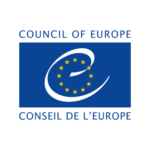Youth political participation
Year of production: 2023
Image of the title page
Youth political participation is taking place within a context of democratic transformation, including a global decline in the state of democracy, shrinking space for civil society, polarisation of the political and social space, economic crisis and precarity, rapid digitalisation, the impact of the Covid-19 pandemic and, most recently, war. In this setting, we are witnessing a lack of trust in political institutions, an increasing disengagement from the political system and a decline in youth participation in institutional politics.
This Youth Knowledge book reminds us that while the context might be changing, young people’s participation is crucial for shaping and transforming democracies. Moving beyond the traditional binary of “conventional” and “nonconventional”, the authors ask the question: “How are young people engaging with democracies in transformation?”, seeking to understand the ways in which young people are defining their own participation.
This volume includes seven chapters, ranging from the mapping of young people’s involvement in environmental justice movements and climate strikes, dissent and radical kindness, explorations of the understanding of the concepts of liberal democracy, youth voice and European citizenship, as well as the importance and role of values and the context. In addition to the chapters, four personal essays, written by young people themselves, give a glimpse into the ways young people are engaging in political participation to shape their schools, communities and Europe, but also the broader systems on which our current politics is built.
Young people’s political participation, citizenship and relationship with democracy remain a complex topic for youth research, policy and practice. While this publication does not claim to answer all the questions or represent the realities of all young people across Europe, it gives a glimpse into the landscape of youth engagement in a changing world, highlighting realities, trends and main issues.






